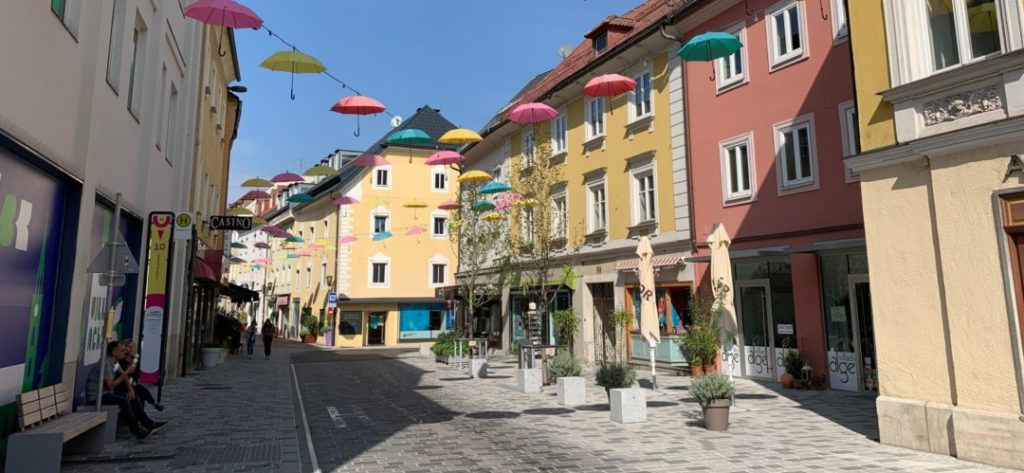Have you checked your reviews lately? It’s crucial that you know what your guests are saying about you so that you can manage their expectations now and in the future.
We all know tourists might want the same visit they had the last time they stopped at your destination, even if it was years ago. But maybe you changed a few things. At some point, every site will roll out changes to their services, hours and pricing structure, among other things. It’s important to communicate that on a regular basis.

Is Your Website Giving Visitors Trust Issues?
ON-DEMAND WEBINAR
Join Bull Moose Marketing’s Director of Digital Strategy & Brand Development, Megan McDonnell, and Lead Web Designer, Nuno Faustino, to learn about the principles and functionality your website needs in order to lay the groundwork for a high-performing, standout DMO website.
Helping Your Visitors Prepare For Your Destination
Here are some tips on how to meet visitor expectations:
- Communicate with potential visitors. Do it loud and make it clear. Do it on your website, in newsletters and on social media. You can also communicate directly with your followers via email, texts and phone messages. The goal is to ensure your guests, especially returning guests, understand if and how things have changed at your site before they arrive.
- Post an all-inclusive FAQ on your website, and update it as needed. An article in Forbes Magazine notes that FAQs are more important than ever to consumers and “are also an effective way to establish trust between company and customer.” It’s a quick and easy method for visitors to view multiple questions and answers.
- Send your visitors updates. If you have advance reservations from folks who provide emails or mobile phone numbers, encourage them to opt into communications so they know your current offerings. You can also send them to your FAQ page for more info.
- Be prepared to offer assistance in having the best experience possible. Visitors might come to you specifically for, say, your homemade chocolate chip cookies that you have offered free every afternoon for years. But maybe you can’t offer those anymore. How about sending folks to a friendly nearby bakery, or better yet, offering a coupon to that bakery?
- Encourage safety. Post your health and wellness policies so that visitors know how you plan to protect them and how to access your facility if they have special needs. Make sure you post all your policies on pets and service animals in advance.
Communicating in advance helps your guests know what to expect at your destination. If you’re transparent, it’s reassuring to visitors who just want to have a great time without encountering surprises on their arrival.
Marketing your destination on a budget?
A marketing strategy can help grow your funds. Learn how.
Watch “Secure Funding and Demonstrate Credibility through Marketing” on-demand here.
Prepare For Scheduling Conflicts
A sold-out venue, road construction, festival cancellations and unforeseen mishaps happen. In situations where you may have to cancel an event, it’s important that you have a drafted policy for refunds and rescheduling posted to your website. Additionally, it’s important to update this information on any social media events and posts. It’s best to be prepared.
Numerous sites, museums and parks often close a portion of their campuses for weddings or private events. This should be front and center on your website. Of course, people aren’t always going to see the message. It’s a good idea to offer rain checks or discounts (especially for out-of-town visitors who can’t return).
One nonprofit that has thorough instructions for guests is Fallingwater. The popular Frank Lloyd Wright site requires reservations for all visits and recommends ticket purchases two weeks in advance. Fallingwater also has an extensive list of helpful tips on planning a visit. It includes travel times and warnings about traffic, road conditions and busiest times of the day, week and month.
Indoor water parks, like Splash Lagoon in Erie, Pennsylvania, suggest that visitors purchase day passes in advance because “there are a limited number of day pass tickets sold each day. We recommend that you purchase your tickets online in advance.”
When you discover that it’s impossible to accommodate a visitor’s needs (and we all know this happens), have a backup plan and offer alternatives. Maybe a nonprofit partner site has some great events if yours are sold out or are otherwise unavailable. That’s often how tourists discover a new favorite destination that they might never have uncovered if their original plans hadn’t fallen through.

Jumpstart Funding
We put together the Ultimate Guide to Funding for DMOs
Don’t Forget To Communicate With Stakeholders
If you change hours, pricing or experience sold-out events, you certainly want to make sure customers know about it, but you also want to communicate with stakeholders and business partners as early as you can.
These are your colleagues and sometimes your neighbors. They can help you work through objections you might receive from customers, and they can easily assist in suggesting alternate attractions. This gives you the opportunity to market your whole region, not just a single amenity.
Depending on how urgent the news is that you need to share, you might want to send it via emails, texts, calls and newsletters. If it’s the business next door, you can do it in person to foster more personal relationships with your stakeholders.
Create A Memorable Experience
The goal for managing visitor expectations is to create a positive and memorable experience that will bring visitors back many times in the future. Ad Age suggests that “60% of consumers are likely to become repeat buyers after a personalized experience, so if you’re investing in personalization you’re investing in customer loyalty and future sales.”
Use all your communication tools to stay in touch with your guests. This will help meet visitor expectations long before they arrive at your tourist destination. And, all of that will help your guests have positive experiences that they share in online reviews.

Bull Moose
The star behind Bull Moose Marketing. Experienced traveler, whiskey connoisseur and selective herbivore. ? Stay tuned for my new podcast, "The Scenic Route", on cultural tourism and economic development. ?
Help Articles
The Progressive Marketer
Marketing articles for manufacturing, construction, B2B services, tourism, and other industry segments working to make their communities better places to work and live.
Your Visitors Just Want to Feel Understood
When it comes to travel, your visitors want to feel understood. Destinations that can show empathy and understanding will gain their trust and loyalty.
What Does the Metaverse Mean for Rural Destinations?
With the Metaverse making tourism headlines everywhere, it’s vital for rural DMOs and CVBs to know what this trend means for their destination.
How to Build an Authentic Brand Promise with Your Destination’s Website
It’s important to make sure the first impression, and every touch-point in between, is one that’s authentic for your DMO, CVB or cultural nonprofit. Your visitors want to know that your area is worth the visit, and that they can trust that you’re marketing an experience that will match up to expectations.
